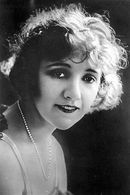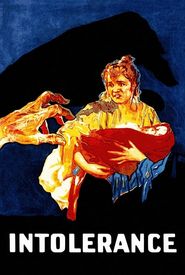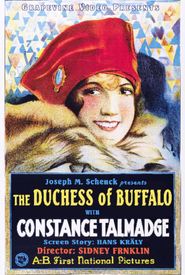Constance Talmadge, a blonde and bubbly comedienne, was the star sister of the brunette Norma Talmadge. She was known for her buoyant personality and was nicknamed "Dutch" by her stage mother Peg due to her resemblance to a cherubic Little Dutch Boy. Constance was one of the most popular and enduring silent film stars of romantic comedy, starring in a wide range of comedies and dramas throughout the 1910s and 1920s.
Born in Brooklyn on April 19, 1898, Constance's childhood was marked by hardship and tragedy. Her father, Fred Talmadge, was a chronic alcoholic who eventually abandoned his family, leaving Constance and her sisters, Norma and Natalie, to fend for themselves. Despite these difficulties, Constance's passion for acting was evident from a young age, and she began her career in the film industry as a teenager.
Constance's early films were a series of comedy shorts for Vitagraph Studios, including "In Bridal Attire" (1914). She went on to appear in a number of two-reel comedies, often alongside comedian Billy Quirk, and drew major acclaim for her role in D.W. Griffith's epic masterpiece "Intolerance" (1916). Her performance was so impressive that Griffith re-shot her death scene ending to ensure that her character lived happily ever after.
Throughout the late 1910s and early 1920s, Constance charmed audiences with a series of flapper-era comedy vehicles, many of which co-starred silent film great Harrison Ford. These films included "A Pair of Silk Stockings" (1918),"Happiness a la Mode" (1919),"Romance and Arabella" (1919),"Wedding Bells" (1921),and "The Primitive Lover" (1922). Constance's popularity continued to grow, and she eventually formed her own production company.
However, with the advent of sound, Constance and her sister Norma abruptly left the film industry. The notion that they willingly abandoned their careers while still at the height of their success is not entirely accurate. Both sisters were known to have pronounced Brooklyn accents, which may have made it difficult for them to transition to talking pictures. Instead, it is likely that they left Hollywood on their own terms before they were shunned.
In later life, Constance invested wisely in business ventures and was married four times. However, she struggled with alcohol abuse and became reclusive. She died of pneumonia in Los Angeles on November 23, 1973.






















